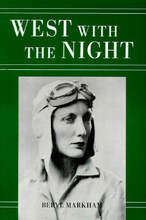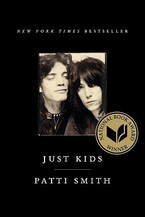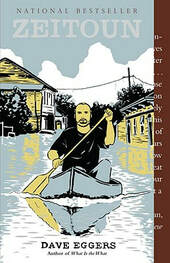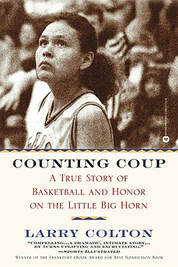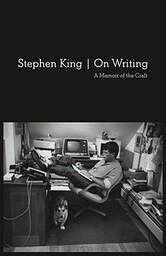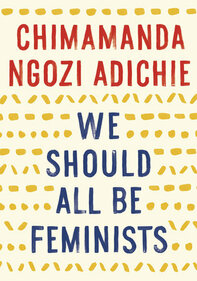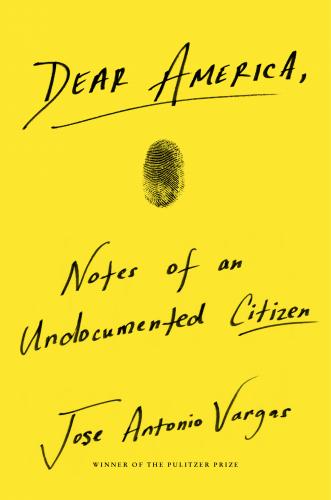 Dear America: Notes of an undocumented citizen by Jose Antonio Vargas (2018) — This book offers a poignant, plainly spoken, well-crafted, and intimate look at life as an undocumented worker in the USA. Mr. Vargas is possibly the most famous undocumented citizen in the USA and uses his Pulitzer Prize winning writing abilities to create an insightful and searing look at what being undocumented actually means. What emerges is a portrait of many things I assumed would be part of an undocumented worker’s life – hard work, fear, contributing to one’s community, and hardships associated with maintaining basic dignity. What I had not previously considered is how extraordinarily difficult it is to live a life with a lie at its core. What is the education connection? Well, despite Mr. Vargas’s contention this book is about homelessness, I would argue that the book repeatedly demonstrates the importance of great schools, amazing teachers, good books, and mentors. Basically, this book illustrates what education can open for so many. And, as with the other two picks in this post, this memoir is highly recommended (and timely based on recent news) for Book Clubs. ~ Lisa Christie 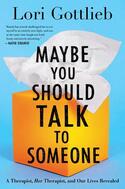 Maybe You Should Talk to Someone by Lori Gottlieb (2019) -- I loved every page of this expansive memoir of the author's life as a therapist and as someone in therapy. Ms. Gottlieb's honesty about her own mental health needs -- begun by a strong need for help recovering from the unexpected ending of her engagement, but definitely not ending there - intertwined with tales of her clients really allows you to look at your own mental health and what can be done to help (even if you are fine, or think you are fine). ~ Lisa Christie and strongly seconded by Lisa Cadow who adds: As someone headed back to school in the fall to pursue a masters in counseling, I found this book to be a jump start into better understanding the therapeutic process. Gottlieb is whipper-snapper smart, funny, and a great story-teller. Lucky for us, she is also an excellent educator and she uses this book as a way to explain techniques, theory, and the history of psychology. Not surprisingly, given her choice of career path, she has fantastic insight into the human condition. You will wish you could find a therapist like her. 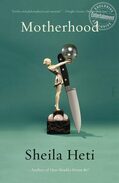 Motherhood by Shelia Heti (2019 paperback)- Canadian author Sheila Heti is all at once a philosopher, a poet, a radical self-inquisitor, and a cultural explorer. Her introspective writing style pulls readers into her active mind, taking them on an intellectual and emotional journey to deeply examine every facet of an issue alongside her, which in this case is the loaded subject of motherhood. To be or not to be? The nameless narrator in this, her second autobiographical novel, is a woman in her late 30's. She has found a supportive mate named Miles and we meet her as she is struggling to decide whether being a mother is right for her. Reading this book is like being on a reproductive roller coaster ride strapped into the unsteady seat next to Heti: her momentary leanings, ambivalence, and vertigo induced by the idea of parenting shifting from one page to the next. Reading this, I felt torn and simultaneously exposed, pushed to re-examine with a fresh lens my own (good for me) choice to have children (twenty plus years ago), my own ongoing confusion about this role and society's expectations, my complacency being on the other side of this decision making, and my assumptions about the younger women around me. To say that Heti is a talented writer would be like saying like Georgia O'Keeffe was a talented artist. There is a quality to her genius that allows her, like O'Keeffe, to gracefully explore internal as well as external landscapes, raw femininity, gender, power, and the many colors of emotion. The question Heti poses in this work is not new, and is, in fact, more important than her ultimate answer to it, which consistently eludes her. As she reflects, "Whether I want kids is a secret I keep from myself - it is the greatest secret I keep from myself." This book is recommended for all of us surrounded by people making reproductive decisions, for those pondering the magnitude of motherhood, or simply for those with mothers and sisters on Mother's Day- and on every day of the year. A New York Times Notable Book of 2018. ~Lisa Cadow  Black is the Body by Emily Bernard (2019) - A collection of essays discussing being Black in the predominantly white spaces of Vermont. Insightful, vulnerable, and helpful. Ms. Bernard is a professor of English at the University of Vermont who was born and raised in Nashville, Tennessee. It is our belief our home state benefits greatly from her presence here. ~ Lisa Christie 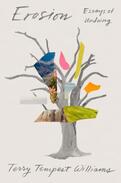 Erosion: Essays of Undoing by Terry Tempest Williams (2019). Reading this book of essays is like taking a long walk through the American West with your most passionate, poetic, and eloquent environmentalist friend. Williams writes with honesty and grace but also with gravity. This is not an uplifting work nor is it meant to be. She is deeply concerned about the future of her beloved Utah, democracy, disappearing birds, Bears Ears National Monument, and the management of public lands. These are serious essays about tea ceremonies in the dessert post-election 2016, the loss of loved ones and beloved places, and the degradation of important legislation. But Williams always notices the beauty around her and encourages her readers to appreciate it as well. This book is for the naturalist in your life. Its message will continue to have an impact long after the last page is turned, inspiring action, preservation and “do-ing.” ~ Lisa Cadow 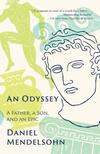 An Odyssey by Daniel Mendelsohn (2017). This was a New York Times/PBS NewsHour Book Club Pick, but we did not know that when we picked it for this post. I loved it for its look at Homer's Odyssey and for its exploration of the relationship between a father and son when the father decides to take his son's undergraduate Odyssey seminar at Bard College. ~ Lisa Cadow 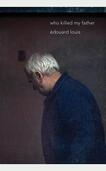 Who Killed My Father by Edouard Louis (2019). This slim volume packs a punch as the author rips into France's neglect of the working class (as seen during strikes earlier this year). He does this by chronicaling his visit to his childhood home to visit his ailing father. Tough, but full of compassion and things to think and talk about. ~ Lisa Cadow 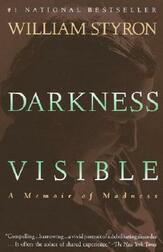 Darkness Visible by William Styron (1992) – The author of Sophie’s Choicestruggled with depression for years. The father of a friend of mine, who also struggles mightily with depression told me years ago that this brief memoir by Styron came the closest he has ever read to describing what living with a mental illness feels like. This book has been described as conveying “the full terror of depression’s psychic landscape, as well as the illuminating path to recovery”. Would be a great entry into good discussions of mental health and life. ~ Lisa Christie 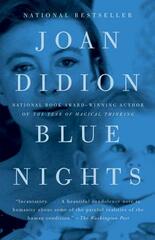 Blue Nights by Joan Didion (2012) – Written to help make sense of the death of her daughter, this book is full of moving prose, profound thoughts and insight into life with mental illness and facing death. And while Ms. Didion is frustratingly very vague about the exact nature of her daughter’s illness and even the cause of her death, she refers throughout this memoir to the “signs” all along the way that something was troubling her daughter and in retrospect maybe help could have arrived in time. I am so glad I picked this up thinking I could use a good memoir, never knowing it would be a perfect book club book. ~ Lisa Christie
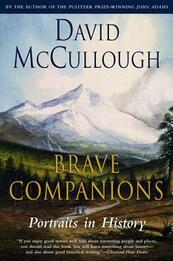 Brave Companions: Portraits in History by David McCullough (1991) – Gorgeous, insightful, interesting and diverse essays populate this collection. We promise you will learn something and the diversity of the subjects (e.g., life in DC, building of the Brooklyn Bridge, Harriet Beecher Stowe, pioneer aviators like Amelia Earhart, Beryl Markham, and Anne Lindbergh, what Presidents do in retirement) means that there is something in this collection for every reader. ~ Lisa Christie 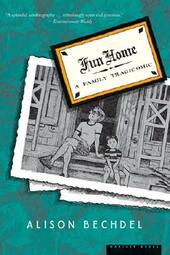 Fun Home by Alison Bechdel (2007 – We hope someone does a ten year anniversary edition soon) – This graphic memoir by Vermont’s own Ms. Bechdel bravely tackles how sexual identity is formed, the costs of suppression, and well, “coming of age” for lack of a better phrase. We also highly recommend the Tony Award winning Broadway play now on tour in the USA. ~ Lisa Christie 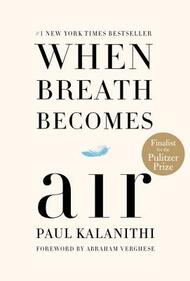 When Breath Becomes Air by Paul Kalinithi (2016) – (First reviewed in the summer of 2016.) At the outset, we know that the author, 36-year old Paul will succumb to lung cancer at the height of his career as a neurosurgeon. Don’t let this deter you from reading his incredible story and from benefiting from the insights he gleaned during his short life. Dr. Kalinithi is a brilliant writer who was curious from a young age about the workings of the mind and it’s connection to our soul. He studied philosophy and creative writing before committing to medicine. These studies give him other lenses from which to explore profound questions. He is candid with the reader about his personal and professional struggles. Ultimately, I found this book hopeful and inspiring. When I turned the last page I immediately wanted to share it with loved ones. ~ Lisa Cadow and Lisa Christie 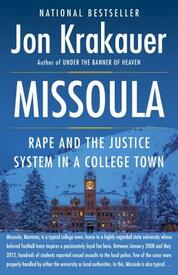 Missoula by Jon Krakauer (2015) – It took awhile for this to get to the top of my bedside stack of books, but once I started I could not put it down. Mr. Krakauer’s rigorously researched analysis of 52 months of reported sexual assaults around the University of Montana is enlightening, sad, anger-provoking and most tragically could have been written in so many college towns. This is important, read it, ponder it, and somehow act to end a culture in which victims are punished over and over again. ~ Lisa Christie 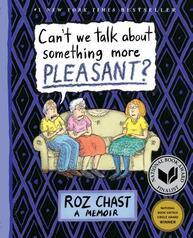 Can’t We Talk About Something More Pleasant? by Roz Chast (2014) – First brought to our attention by Lucinda Walker, town librarian extraordinaire, this memoir is funny, poignant, and helpful. It truly offers a superbly humorous way to approach failing health and ultimately death. As Lucinda said in her six-word review during the 2014 Pages in the Pub, “Laugh. Cry. Laugh again. Then talk”. ~ Lisa Christie 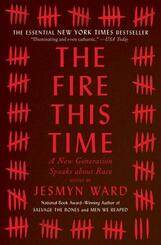 The Fire This Time: A New Generation Speaks About Race by Jesmyn Ward – Ms. Ward, a 2017 McArthur Genius award winner, recently collected a essays from prominent authors of color on race in the USA. A great way to approach how the color of your skin affects your lived experiences. ~ Lisa Christie 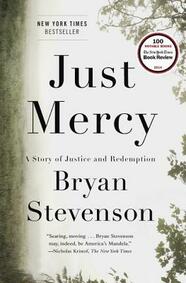 Just Mercy by Bryan Stevenson (2014) – Mr. Stevenson is the founder and director of the Equal Justice Initiative, a legal practice dedicated to defending those most desperate and in need: the poor, the wrongly condemned, and women and children trapped in the farthest reaches of our criminal justice system. Peppered with statistics about of people — those on death row who are people of color, the number of people permanently incarcerated for non-violent crimes committed when they were 12 or 13, etc… — Mr. Stevenson’s book brings these numbers to life in ways that make you care. He also, although he could not have known this when writing it, bring stories from today’s headlines home in ways that, be warned, may incite action on your part in 2015. (Note: The New York Times selected this as one of its 100 notable books of 2014, Esquire Magazinecalled it one of the 5 most important of 2014 and it was one of Time Magazine‘s top ten books of 2014.)~ Lisa Christie 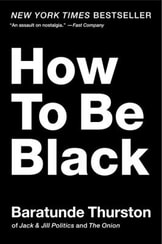 How to Be Black by Baratunde Thurston (2012) – As the author himself facetiously writes, please read this as part of your preparation for African-American history month activities. Through truly funny and often painful humor, Mr. Thurston makes readers think hard about their own racist tendencies. He even has a focus group, with a token white person, to help him think through many of the items he discusses. Whether you agree with him or not, for me, any time I am thinking about how I could better interact with the world, I am truly appreciative of the source that started me thinking about improving my actions. Bonus – it makes you laugh. ~ Lisa Christie 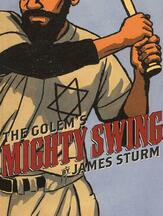 The Golem’s Mighty Swing by James Sturm (2017) – This graphic novel tells the tale of the Stars of David, a barnstorming Jewish baseball team that played during the Depression. Using the true story of a team that travels among small towns playing ball and playing up their religious exoticism as something for people to heckle, this books combines baseball, small towns, racial tensions, and the desperate grasp for the American Dream. ~ Lisa Christie 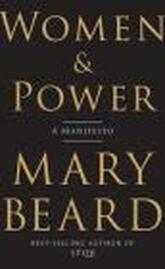 Women and Power: A Manifesto by Mary Beard (2017) – Stop everything you’re doing, find a copy this beautiful little black book and start reading. Next, immediately buy ten copies and share them with your daughters sisters, and mother. And then, read it again. And then, share it with the men in your life (e.g., sons, husband, partner, co-workers, neighbors). Mary Beard’s newest work, sure to be a classic (no pun intended), is based on two of her lectures and draws upon her deep knowledge of the classics (she is a professor at Cambridge University and is the author of bestselling SPQR). Beard examines how the the stories of mythical Greco-Roman characters like Penelope, Medusa, and Clytemnestra have informed women’s contemporary perceptions of how women are allowed to use our voices in public and to navigate the centers of power. A perfect pairing with Chimamanda Adichie’s We Should All Be Feminists and a powerful resource to help guide women in the #metoo era. ~Lisa Cadow and Lisa Christie 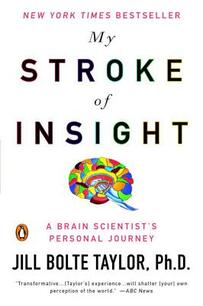 My Stroke of Insight: A Brain Scientist’s Personal Journey by Jill Bolte Taylor (2009) You may have already seen the powerful TED talk given by author Jill Bolte Taylor. It is one of the most viewed videos in their collection because her experience of having a stroke at aged 38 was a powerful one — and the way she communicates about her learning is extremely moving. Taylor’s book has an equally profound effect on readers. Up until she had her stroke, Taylor was a Harvard trained neuroscientist at the peak of her career. She was both teaching about and continuing to study the brain. Then one morning, out of the blue, she experienced a stroke on the left side of her brain which profoundly impacted not only the rest of her life but also her understanding of the human experience, spirituality, and of how healing traumatic brain injuries needs to be approached. A must read for: all who have a brain(!) — but also for those who may have experienced a concussion and want to learn more about how the mind works and how to better heal it. ~Lisa Cadow 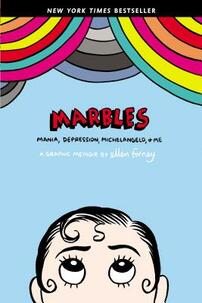 Marbles: Mania, Depression, Michelangelo, and Me by Ellen Forney (2012). In this brave, candid, and brilliantly illustrated memoir about her bipolar disease, Forney takes readers on the roller coaster ride of her experience from her early twenties before her formal diagnosis, through the waves of her initial manic episodes (that include uber creativity as well as hyper-sexuality; reader beware), down to the depths of her depression, and through the difficult slog of figuring out how to effectively prescribe (and take) her medications. This memoir is brutally honest – Forney doesn’t shy away from things that are raw and even potentially embarrassing. It is such an essential read for those trying to better understand what bipolar really means, what it is like to live with it, what the support of love ones can mean when challenged with behavioral health issues, and how management IS possible. Don’t underestimate the power that drawings can have on conveying a storyline and accompanying emotion! This was one of the most powerful books I read in 2017 and one that I have now recommended to numerous patients and friends. ~Lisa Cadow 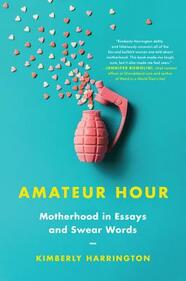 Amateur Hour: Motherhood in Essays and Swear Words by Kimberly Harrington (2018) – This collection of essays features a distinctive voice (one that is often seen in The New Yorker, and McSweeney’s) that applies humor, tears, cursing, love, and unique insight to almost every aspect of motherhood/life: a failed pregnancy, relocating across the country, a request to end “mommy wars” steeped with insight from both sides, grandparents/Florida, to do lists, meal-train etiquette, participation trophies, parenting experts, plane rides with kids, and partners. You will grin throughout this collection, as each essay is graced with humor and humility. You will tear-up a bit reading many of the essays as some are poignant and unsparing (e.g., a retelling of a failed pregnancy, and/or a story of a fight over divorcing – they didn’t – that uses FB “likes” to score points). Quick note: we found this book because one of its chapters was a recent Op-Ed in The New York Times. (Previously reviewed in mother’s day picks.) ~ Lisa Christie 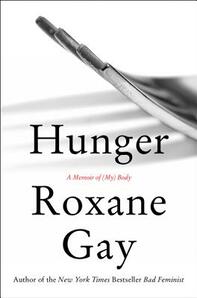 Hunger by Roxane Gay (2017) – I don’t think I have ever read such a well-written, honest, and brutal account of sexual assault and its aftermath. This sounds like a horrific reason to pick up a book; and, it is horrid to think that the author endured a brutal and life-altering assault at age 12. Her analysis of her life after assault, as a morbidly obese woman in a society that abhors fat people, is brutal and punctuated with self-loathing. That said, her story and Ms. Gay’s candid insight offer much more than horror; this memoir is also filled with hope, self love, professional accomplishments, friendships, mistakes, social commentary, and always, always her body and her relationship with it. If you wish to understand how sexual assault affects people long after the crime, Ms. Gay will help. If you have ever tried to explain your relationship with your own body, Ms. Gay will help. If you have never understood this relationship, Ms. Gay will help. If you want to better understand how people who are obese often feel, Ms. Gay offers this gift to you. If you have a complicated relationship with your body, Ms. Gay shows you are not alone. If you just want to spend some time with a talented writer of insight, Ms. Gay’s Hunger is your chance. (Previously reviewed in We’re Back, with Two Great Books from Our “Gone Reading Break“.) ~ Lisa Christie 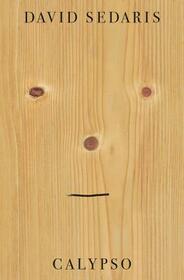 Calypso by David Sedaris (2018) – Mr. Sedaris’s latest collection of essays tackles the “not-so-joyful” aspects of reaching middle age. Perhaps because of this, this collection is not as laugh-out-loud funny as his previous collections. That said, it is impossible for me to read Mr. Sedaris’s work without hearing his distinctive voice in my head, making his wry insights even funnier than they initially appear. And honestly, his perceptive commentary about life’s mundane and heartbreaking moments is superb no matter the level of humor. I will frame his paragraph in “Leviathan” beginning “It’s ridiculous how often you have to say hello on Emerald Island” for its treatise on the fact Southerners insist on saying hello. I will then present it to my children as a constant explanation for why I say hello to complete strangers; they may never understand this trait, but they will forever have documentation of its source – my childhood in Tennessee. Pick this up and enjoy! ~ Lisa Christie 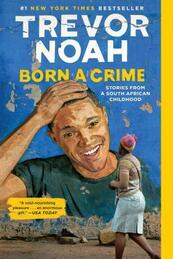 Born a Crime by Trevor Noah (2016) – Funny, sad, and amazingly moving memoir about growing up a biracial child in South Africa during and just after Apartheid. Mr. Noah is insightful and honest as he dissects his life and his choices and the choices that were made for him. Each chapter begins with an overview of life in South Africa that relates to the subsequent story from his own life. (Named on the best books of the year by NPR, New York Times, Esquire, Booklist.) ~ Lisa Christie 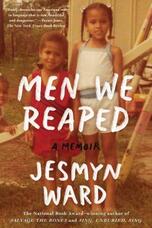 Men We Reaped by Jessmyn Ward (2013) – This coming of age memoir shows what it is like to grow up smart, poor, black and female in America. Ms. Ward’s starting point is a two year period of time shortly after she graduated college during which five boys who she loved and grew up along the Mississippi Coast with experience violent deaths. (Hurricane Katrina and its aftermath also play a role in this drama.) Her prose illuminates these dead young men and the people who loved/still love them; it also exposes the people behind the statistics that almost one in 10 young black men are in jail and murder is the greatest killer of black men under the age of 24. And while the material is brutal, the memoir is not; it is insightful, introspective, beautifully written, and important. At some point Ms. Ward states that the series of deaths is “a brutal list, in its immediacy and its relentlessness, and it’s a list that silences people. It silenced me for a long time.” We are glad she found her voice and told her story. ~ Lisa Christie
0 Comments
|
Book Reviews |
Meet the Author |
EVENTS |
ABOUT US |
SEARCH |
© COPYRIGHT 2019. ALL RIGHTS RESERVED.
|
